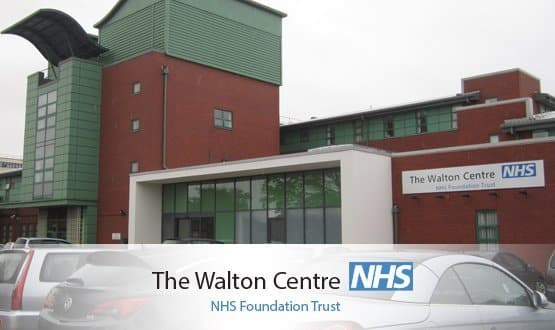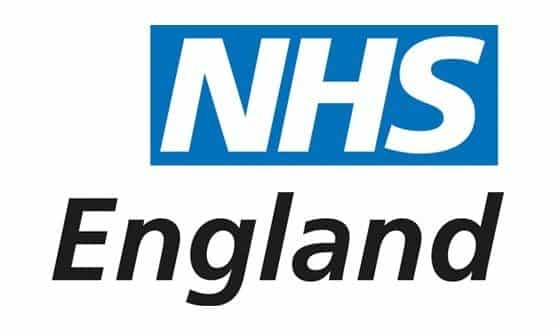Ready to rock and roll – The Walton Centre on being a Digital Aspirant
- 6 July 2021

There are three key areas of work for The Walton Centre under its new role as a Digital Aspirant: Infrastructure, interoperability, and electronic patient record maturity – and it’s “ready to rock and roll”.
The NHS foundation trust – the country’s only specialist neurosciences trust – was named in the second wave of Digital Aspirants exclusively revealed at Digital Health Rewired 2021.
It will receive £6m over three years from NHSX, with match funding from the trust to boost its digital capabilities.
Speaking to Digital Health News about the trust’s ambitions for the funding, head of IT Justin Griffiths said the programme had “dramatically” accelerated planned digitisation works and the trust was now “getting our house in order to get ready to rock and roll”.
The trust recently became HIMMS Level 5 and is aiming to hit HIMMS Level 6 with help from the Digital Aspirant funding.
“It’s accelerated our timeframe [to deliver IT projects] dramatically, which is incredibly exciting,” Griffiths said.
“There’s a lot of change involved and we’re very conscious around organisational business change… so we’re doing a lot around digital transformation and how we can best do that for people at the coalface.
“It’s about making sure we can get things done quicker, but also better for the people involved, and it gives us time to talk to the end users to make sure that what we’re putting in place is exactly what’s required for them.”
One of the programmes brought forward 12 months by the Aspirant funding is the trust’s plans to digitise intensive therapy unit (ITU) pathways.
The project will see the use of technology, including low emission Bluetooth, to track patient journeys in the unit to reduce the need for paper records when transferred elsewhere in the hospital. It will see more patient records from the ITU department integrated into the trust’s electronic records.
“Now we can make a system that our consultants and nursing staff are very happy with from an ITU point of view,” Griffiths told Digital Health News.
“ITU is very form based, they are complex forms because they have to be, and this is about making it into that digital arena so they can be shared beyond ITU.
“We get a lot of people from major trauma centre, and we don’t have an A&E, they come straight into theatres and then go into ITU. So ITU is critical for that patient journey and needs to expand beyond that.”
EPR maturity
The “greatest focus” of the Digital Aspirant funding, and the trusts digitisation plans, is the maturity of its electronic patient record (EPR).
Unlike other trusts who have paid big money for EPRs provided by global tech giants, The Walton Centre opted to build their own system to best match what the trust needed it to achieve.
“The EPR maturity is probably our greatest focus because it’s an in-house system, so it’s built on top of best-of-breed,” Griffiths said.
“We have Silverlink PAS that we use as a patient administration system because that’s quite complex so there’s no point trying to re-write that, but above that our EPR sits as a presentation layer, so all the clinical documents and forms are done through that.
“Then the interoperability ties in nicely with that workstream on how we link into our CareStream PACS [picture archiving and communication system], and our EPMA [electronic prescribing and medicines administration] system.”
Griffiths said the decision to go their own way when developing an EPR was based on the best outcome for the end user.
“From a consultant point of view, at the point of care, they don’t care what system is happening below it, they want it in patient context where it all comes together,” he added.
“So that is our biggest excitement, of moving that forward now.”
Being an Aspirant
The Digital Aspirant programme was launched in December 2019, with the first round of trusts named in March 2020. The second wave of Aspirants, featuring thirty-two trusts, was exclusively revealed by former health secretary Matt Hancock at Digital Health Rewired 2021.
Seven trusts received up to £6 million over three years to deliver their digital ambitions, with a further 25 will receiving seed funding of £250,000 each to develop digital strategies.
The aim of the programme is to raise the bar across the NHS by making sure organisations have a core set of digital capabilities in place.
Griffiths confirmed that The Walton Centre would be required to create to blueprints as part of its role as a Digital Aspirant, aimed at making it easier for other trusts to adopt best practice.
They will include the trust’s bespoke ITU system and custom-built EPR.
Griffiths added that digital transformation wasn’t always about “reinventing the wheel” and that often learning from other’s success was the way forward.
To that end the trust’s EPR system will be published on an opensource platform in the coming years as a resource for other trusts looking to build a similar system.
He stressed the importance of programmes like the Digital Aspirant in helping trusts “bring in the expertise” to accelerate digital transformation.
The Digital Health Networks has recently called on newly appointed health secretary Sajid Javid to continue the momentum with digital and data programmes in the NHS, like the Digital Aspirant programme, following his appointment last week.
Javid’s position on technology in the NHS remains unclear, with the Networks calling for a “statement of intent about the digitisation agenda”.





1 Comments
My experience as a service user at Walton doesn’t match the narrative. They need to get the basics done first. If they are HIMMS level 5 , why does the OPD consulting rooms are full of paper request/referral forms. Also should listen to the medics who go off to make a coffee while waiting for the login process to work.
Comments are closed.